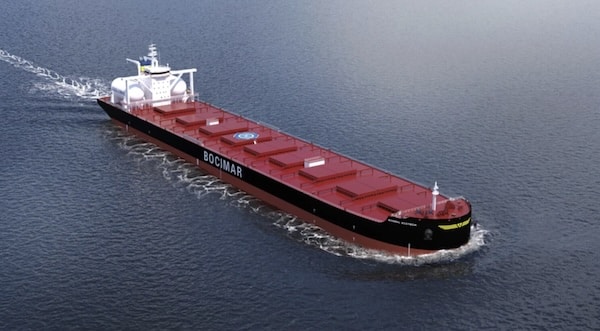Shipping Industry Faces Urgent Energy Transition

As climate change intensifies, vessel owners and operators are confronted with critical decisions in a complex maritime landscape. Shipping, responsible for approximately 80% of global trade, also contributes around 3% of worldwide greenhouse gas emissions. In response, the International Maritime Organization (IMO) has established a revised strategy aimed at significantly reducing these emissions by 2030 and achieving net-zero emissions by 2050.
Navigating the Challenges of Maritime Energy Transition
The pathway to achieving these ambitious targets remains fraught with uncertainty. The maritime energy transition presents a myriad of operational, technical, and commercial challenges, alongside new and evolving risks. The urgency of these challenges cannot be overstated, as the industry grapples with the implications of adopting alternative fuels and lower-carbon operations.
West of England, a prominent protection and indemnity (P&I) club, recognizes its pivotal role in shaping the regulatory landscape through industry collaboration. The organization is committed to supporting its members in navigating the complexities of this transition. This includes sharing knowledge, providing risk guidance, and offering technical insights. One notable member, CMB.TECH, has already begun operating vessels powered by alternative fuels, providing valuable insights into the risks and considerations associated with early adoption.
The shift to alternative fuels introduces a range of unfamiliar hazards, including toxicity, reactivity, bunkering complexity, fire risk, and unpredictable spill behavior. While these risks are evolving, West of England’s expertise in pollution response and operational risk management positions it well to assist members in addressing these challenges. The club’s internal specialists leverage decades of experience in claims handling and regulatory compliance to support discussions on new fuel types, bunkering procedures, and incident prevention.
CMB.TECH: A Case Study in Sustainable Shipping
CMB.TECH exemplifies a proactive approach to the energy transition within the maritime sector. As a diversified maritime group operating a fleet of over 160 vessels, including dry bulk carriers, container ships, and offshore wind support vessels, CMB.TECH is both an early adopter and producer of low-carbon fuels. Their strategy emphasizes a dual responsibility: reducing emissions from shipping operations while considering the environmental impact of the cargoes they transport.
The company is actively developing hydrogen and ammonia fuel solutions, focusing on hydrogen for smaller vessels and ammonia for larger ships. Additionally, CMB.TECH is investing in research and development to expand hydrogen use in heavy-duty vehicles, including trucks and straddle carriers, thereby extending its commitment to decarbonization across the entire supply chain.
West of England collaborates closely with CMB.TECH and other members to assess the evolving risk landscape associated with these new fuels. Key considerations include the changing liability and compensation regimes for spills, crew safety, regulatory compliance, and potential implications for P&I coverage.
As the maritime industry embarks on this critical transition, West of England remains dedicated to providing informed support to its members. By learning from pioneers like CMB.TECH, the organization aims to enhance its expertise and better assist other members in navigating similar challenges with confidence.
